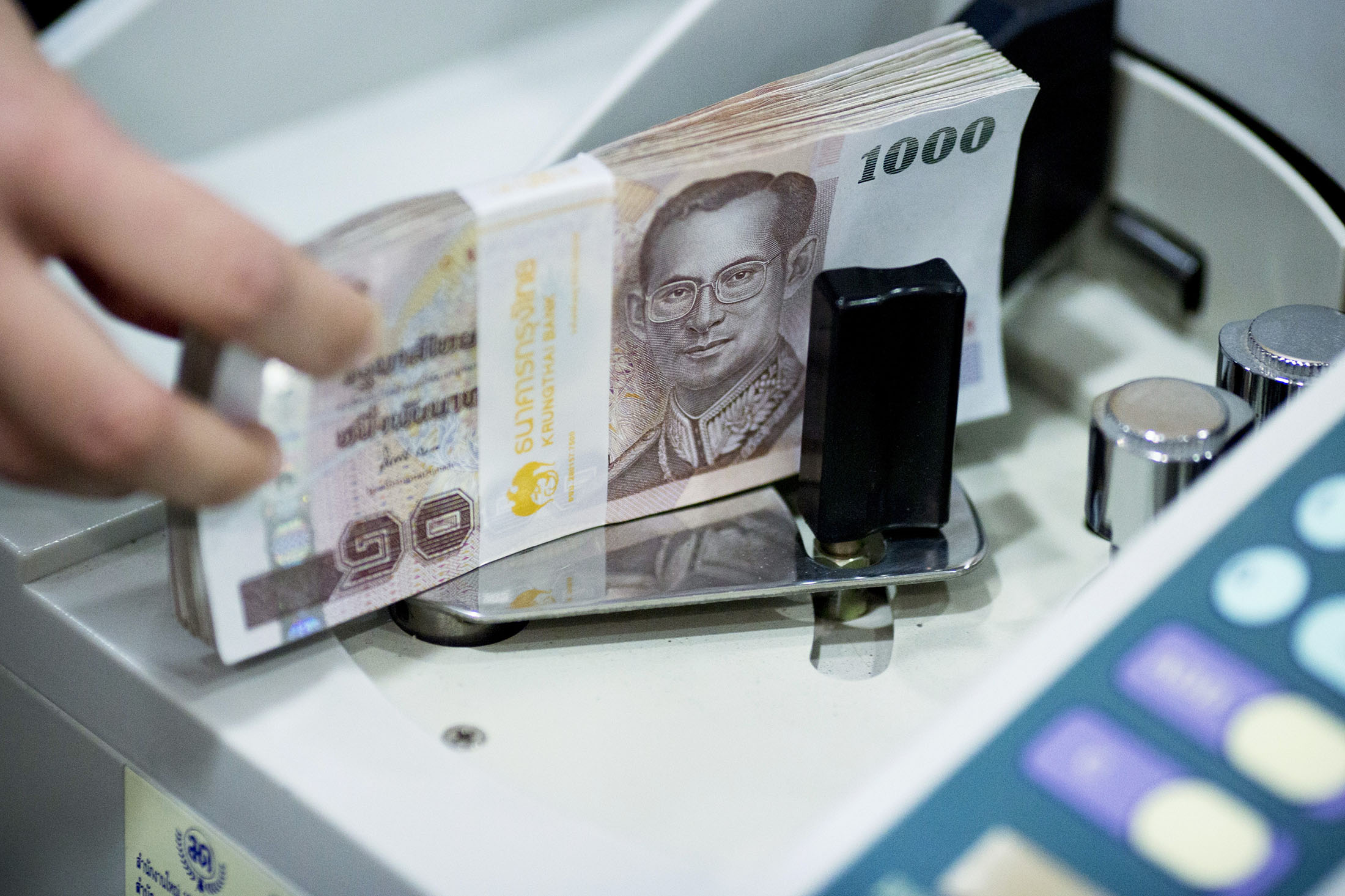A surge in Thailand’s currency is putting the question of an interest-rate cut back on the table.
While economists predict the Bank of Thailand will keep its benchmark interest rate unchanged near a record low of 1.5 percent on Wednesday -- where it’s been for more than two years -- some debt investors are starting to price in a rate cut.
The baht has surged 7.7 percent against the dollar this year, the strongest performance in Asia posing a risk to the export-reliant economy. Foreign reserves reached a record $191 billion last week, in a sign of the nation’s efforts to tackle currency volatility.
“The recent appreciation in the currency has once again raised the question of should the Bank of Thailand cut rates in order to lower the attractiveness of the baht,” said Rahul Bajoria, a senior economist at Barclays Plc in Singapore. “We don’t think the central bank would be keen to use the monetary channel to reduce that, as the current-account surplus remains very large.”
He foresees no change in borrowing costs in the Bank of Thailand’s decision due 2:05 p.m. in Bangkok. Here are some key factors to watch:
Currency Climb
Analysts will be looking for central bank commentary on the baht in the policy statement. The currency’s ascent threatens to weigh on a recent recovery in exports. Officials have curbed the supply of short-term bonds in an effort to prevent foreign investors speculating on the baht by investing in Thai debt.
Moderate Inflation
Consumer prices rose 0.17 percent in July from a year earlier, the first advance in three months and less than the central bank’s goal of 2.5 percent, plus or minus 1.5 percentage points. While the monetary authority forecasts an acceleration in the second half, it sees annual inflation of just 0.8 percent this year and 1.6 percent in 2018.
GDP Outlook
The Bank of Thailand forecasts 3.5 percent economic expansion this year, which would be the fastest pace since 2012. Exports and tourism are supporting the economy, and the military government is seeking to speed up infrastructure projects to catalyze investment. Still, the $407 billion economy’s growth outlook trails that of emerging Southeast Asian neighbors, partly as banks tackle a climb in non-performing loans and households deleverage. – Bloomberg
